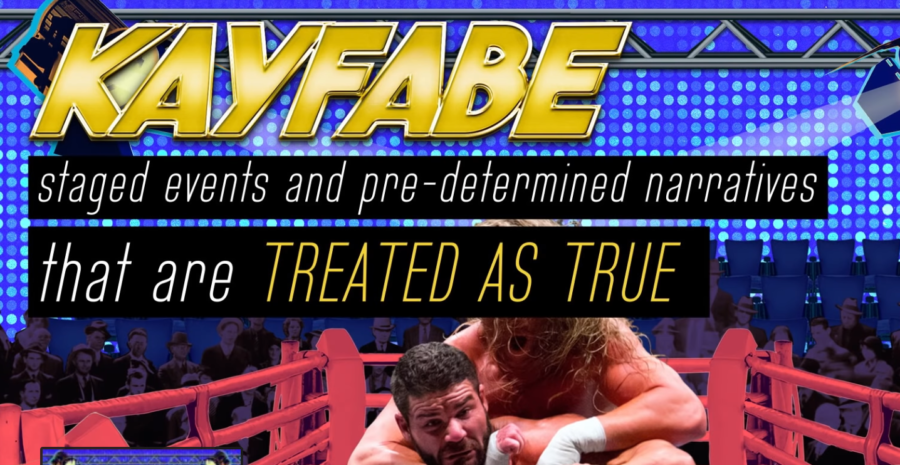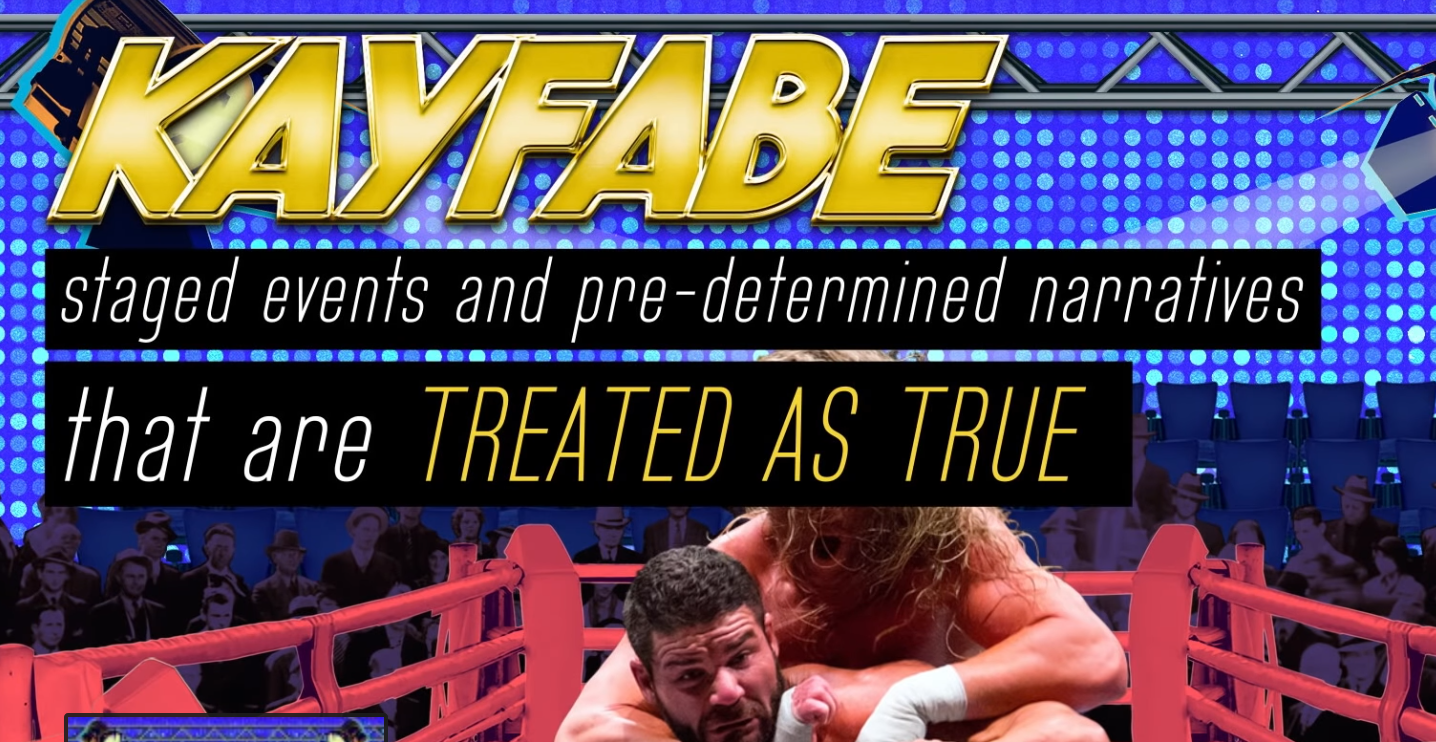
Looking back, thinking forward: Kayfabe
The lie we’ll agree to be true. Wisecrack’s discussion of Kayfabe.
With 2019 coming to a close, I’m sharing some of the best content around informing ideas around content strategy I looked at this year. Particularly ones I thought they might be clues for bigger things to think about.
This one is about Kayfabe and how it shapes both narrative and audience engagement.
Kayfabe is a term that was first coined in professional wrestling.
Kayfabe refers to the cult-like phenomenon for the audience and performers around a fake story or event (e.g., “professional” wrestling) to act as if the wild stories and characters and rivalry relationships are completely real.
A professed belief and passion among wrestling fans, even though, in their heart of hearts, they know that wrestling is not real and the drama is only part of a planned performance.
In wrestling, this unspoken agreement among Kayfabe participants is maintained vigorously. For example, as the embedded Wisecrack video notes, Hulk Hogan was almost arrested by the cops after being stopped because two other wrestling characters he was with, characters known for not speaking, wouldn’t break character to speak and vouch for him.
The pact that cements the act of Kayfabe is that all sides derive benefit from acting as if they believe the false story.
The benefit is enjoying the excitement, connection, and revenue attached to the scripted and over-the-top portrayal. No one dare makes a move that punctures the perception and excitement or else, wrestling would deflate from “dangerous” sport to just a farcical performance with actors.
If that were to happen, the actors in wrestling would lose fans and credibility as “sports” professionals. Fans would lose the illusion of the alluring and intoxifying combat that entertains them. And for some, that illusion gives them identity and purpose.
Some fans that feel so apart of the Kayfabe that they buy and bring their WWE championship belts to restaurants and sit next to me (again, even though they know in their gut none of it is real) to watch the next pay per view WWE event while I’m having chicken wings.
Kayfabe reminds me of an old Star Trek episode.

Remember “The Glass Menagerie,” from the original series? The episode when aliens, capable of illusion, let Captain Christopher Pike, now paralyzed, unable to speak and using a brainwave-operated wheelchair live on Talos IV with the illusion of a normal working body and the companionship with Vina, a seemingly beautiful woman who was also deformed in real life.

He, the aliens and Vina know the life offered is not real, but all agree to the illusion to feel happy.
I highlighted this video about Kayfabe as a model/talking point that could explain some aspects creeping into entertainment and well as political culture.
A lot more of what we see in areas like entertainment and politics is now a form of group participation as stagecraft.
In areas where organizations or businesses work with media, the participants (actors and audience) often collude to create an image or not-so-true assertion of reality that they each benefit from. In short, everyone, not just the actors, is a performer in the play. Think influencers and followers around Instagram. Think reality TV.
Kayfabe and the reality of reality TV.
Instead of capturing real moments, it is more like guiding real people to act dramatically in order to create hyped moments. Moments that are then packaged to its audience (with a knowing wink) as real.
Kayfabe happens here because we want the excitement of “real” housewives fighting with each other and brawling at fancy dining establishments (as housewives always do).
Drama, even though we sense it may not be real (in fact, lots of reality TV shots are reshot for better drama or new angles), but it’s exciting. And when the audience participates to keep the pretense of this “real” event alive, they are rewarded with schadenfreude (shameless joy) to wag their fingers to judge others for their unruly behavior. And like wrestling’s audience, enjoy a play fight like it’s real.
Deep down, where we know it’s fake, is also where we thrive on the juice of drama that is squeezed out of fake conflict. As Wisecrack notes in the video, Kayfabe has made its way into other fields. Including a fake feud between Kanye West and Taylor Swift. As you check it out, consider Kayfabe as an explanation behind what can seem like mass hypnosis in the political process.
The lesson of Kayfabe for content strategy.
For people developing persuasive content, it demonstrates that if you tell a story that people want to believe in or enjoy a perverse drama from, they’ll work with you and suspend disbelief in some facts and reasoning to help you.































